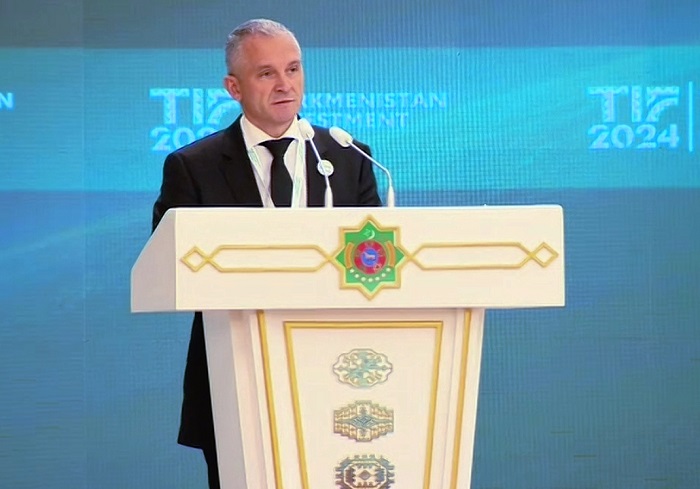According to Dmitry Volvach, Deputy Minister of Economic Development of the Russian Federation, Russia’s unrealized export potential to Turkmenistan amounts to a significant $200 million. This announcement was made during the plenary session of the Turkmenistan Investment Forum (TIF 2024) in Ashgabat.
The trade turnover between Turkmenistan and Russia for the first seven months of 2024 reached $770 million, solidifying Russia’s position as Turkmenistan’s fourth-largest trading partner. Khojamyrat Geldimyratov, Deputy Prime Minister of Turkmenistan for Economics and Finance, introduced Volvach as a key speaker at the event.
Volvach highlighted the significant growth in trade between Russia and Turkmenistan. In 2023, bilateral trade increased by 13% in physical terms, and for the first six months of 2024, it surged by 73.5% in monetary terms. Notably, both exports and imports have witnessed substantial growth.
“The task of diversifying Turkmenistan’s exports is consistent with Russia’s interest in supplying Turkmen products to the chemical industry, agricultural production, and textile industry,” he said.
Furthermore, Volvach revealed that Turkmenistan’s untapped export potential to Russia is estimated at over $30 million. In turn, Russia is eager to increase its non-primary exports to Turkmenistan, including high-complexity products, chemicals, oil and gas equipment, and pipe products. The Deputy Minister noted that Russia’s unrealized export potential to Turkmenistan amounts to a substantial $200 million.
He praised the positive dynamics of Turkmenistan’s economic development. He noted that the recent upgrade in Turkmenistan’s rating by Fitch Ratings has opened doors for additional investment. This will add to the average annual inflow of $1.4 billion in foreign direct investment between 2018 and 2023 in Turkmenistan’s economy .
The key areas of investment in Turkmenistan are gas production and processing, the textile industry, logistics, and agriculture. In the medium term, the development of Turkmenistan’s economy is inextricably linked with the development of alternative energy, transport, and high-value industries.
Volvach identified several promising areas for Turkmen-Russian economic cooperation: digital solutions for tax administration, digitalization of the transport sector, reconstruction and modernization of power generation capacities, development of small and medium-sized renewable energy sources, construction of cross-border power lines, support for small and medium-sized businesses through the adaptation of Russian digital technologies, allowing integrate Turkmen SMEs into global supply chains.
Russian official emphasized the significant potential for cooperation between Turkmenistan and the Eurasian Economic Union (EAEU) within multilateral frameworks, such as the Eurasian Development Bank (EDB).
In this context, Turkmenistan’s participation in one form or another of interaction with the EDB is interesting to everyone, while there are opportunities for the EDB’s investment portfolio in Turkmenistan in the amount of US $ 300-500 million on the horizon of three years, the speaker continued.
Volvach underscored Turkmenistan’s importance as an economic partner for the EAEU. Bilateral trade has witnessed a remarkable surge this year, with a nearly 40% increase in trade turnover between January and June 2024. Both exports and imports have expanded, and the commodity structure of trade with the EAEU has become more diversified.
The EAEU represents a market of nearly 200 million consumers, providing itself with food, key mineral resources, and energy. The Union operates under a unified set of supranational rules, offering a stable and attractive market for Turkmenistan.///nCa, 10 September 2024
